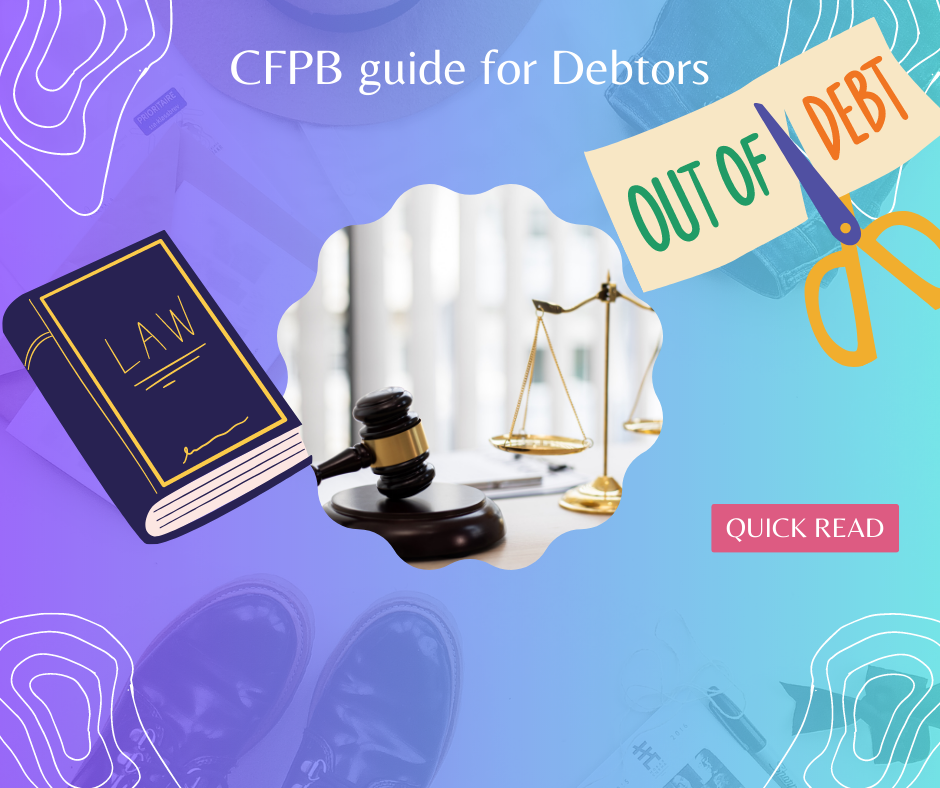Dealing with debt collection may be a difficult and frustrating affair, particularly if you are having financial difficulties. Knowing your rights and the channels via which debt collectors can contact you is crucial. On November 30, 2021, the Consumer Financial Protection Bureau (CFPB) unveiled the Debt Collection Rule to allay these worries. This regulation makes it clear how debt collectors can deal with customers, shielding them from abuse and promoting open dialogue. Here are the top five things you need to know about the new debt collection rule which will give you a fair idea on how cfpb laws safeguards the debtors.
Notice of Debt Collection Validation
A validation notification with crucial details regarding the debt must be given when a debt collector reaches you. This notice contains the name and mailing address of the debt collector, the name and account number of the creditor, and an itemised breakdown of the outstanding debt. It also describes your rights regarding debt collection and how to challenge the debt if necessary. The warning is intended to assist you in confirming the debt information’s veracity and taking the appropriate action.
Limits on Call Frequency
The Fair Debt Collection Practices Act (FDCPA) forbids debt collectors from repeatedly calling customers to harass or abuse them. According to the Debt Collection Rule, a collector is only permitted to phone a given debt seven times in a row. Additionally, they are prohibited from calling you seven days after speaking to you on the phone about the same debt. These restrictions are meant to shield borrowers from persistent telemarketers.
Reporting Debts to Credit Bureaus
Before reporting a debt to credit reporting organizations, debt collectors are required to take certain steps. They must attempt to get in touch with you by phone or in person, send a letter or an electronic message, and then wait a reasonable period of time, often 14 days, to see if the communication is returned as undeliverable. These conditions must be met before they may start reporting the debt to credit agencies and complying with credit reporting rules.
Guidelines for Social Media Communication
In order to protect your privacy and promote openness, debt collectors who contact you through social media must follow certain guidelines. Your private messages must only be seen by you and not by anyone else, including your friends, contacts, or followers. If a debt collector tries to send you a private message, they must identify themselves as such. Additionally, they must offer a simple method for you to decline receiving any further communications from them on that social media network.
Restrictive Voicemail Messages
If certain conditions are met, a debt collector may leave you a “limited-content message” on your voicemail. These messages must contain a company name that doesn’t suggest the caller is a debt collector, a phone number(s) for you to call back, and a request for you to reply with the name(s) of the people you can contact. Debt collectors may sometimes offer extra details like proposed times and dates for your response. Non-compliant voicemails are not categorized as limited-content messages.
Conclusion
The Debt Collection Rule from the CFPB seeks to safeguard consumers from unethical and abusive debt collection tactics while promoting open dialogue. You can manage the debt collection process with confidence if you are aware of your rights and the regulations established by this rule. Keep in mind that debt collectors are subject to regulations and that you have the right to contest debts and refuse to receive certain communications. You can express your rights and defend yourself during the debt collection process by keeping yourself informed.


Your new valuable key points imply much a person like me and extremely more to my office workers. With thanks; from everyone of us.